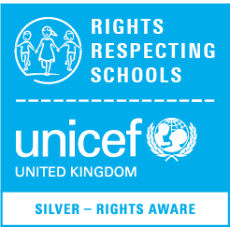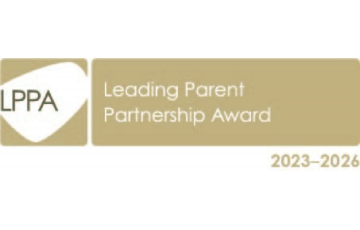Writing
Writing
Intent
Cavendish Primary School believe that writing is a key skill for life both inside and out of education and that is why it features across all the subjects taught across our school. Our aim is to provide children with key transferrable writing skills to build on year on year, that can be used throughout each phase of their education and prepare them for secondary school.
Teaching children to write for a range of purposes and audiences can be very exciting, especially here at Cavendish where we provide children with a range of engaging hooks to capture their imagination! We aim to provide the children with varied reasons for writing and believe that this not only produces higher quality writing, but allows our learners to apply their skills to a range of different contexts. Writing across all subject areas will prepare our children for high school and the more in-depth approach to analysing, planning and innovating their writing.
Discussion, questioning and learning texts with actions (age appropriate) all increase understanding and prepare our children with the tools they need in order to be successful in their writing. Our aim is for ALL learners to achieve their full potential in writing and we are committed to providing the scaffolds and challenge needed in order for our children to achieve this.
Implementation – how we teach Writing at Cavendish
At Cavendish, we feel that age appropriate, challenging and motivational learning varies as children move through the curriculum.
We ensure that at each age:
- Writing is accessible to allow ALL pupils, including those with SEND, to access the full curriculum offer
- Leaders ensure that ALL staff receive focused and highly effective professional development. They provide effective, regular training programmes for all teaching staff. Teacher’s pedagogical knowledge develops over time because of this.
- There is a rigorous sequential approach to the writing curriculum to ensure development of fluency, confidence and enjoyment
- The teaching of vocabulary, grammar and cohesion (including archaic language) are important.
- Leaders focus on improving teacher’s understanding and appropriate use of assessment and moderation.
- Writing is planned and builds on prior learning and introduces new knowledge ensuring the curriculum is covered in each year group.
At Cavendish we follow the Pathways to Writing (The Literacy Company) methodology built around units of work which develop writing skills, vocabulary and reading through the mastery approach.
Children engage in discussions, storytelling, and drama activities to internalise the structure and language of different text types. This approach helps children understand how stories and texts are constructed before they start writing. Each writing unit uses a book as a stimulus for discussion and immersion and starts with a hook.
EYFS
In EYFS, we follow these Pathways (see attachment for further information):
Nursery - Set 1: Cycle A
Reception : Set 2
Our EYFS curriculum is based around the Statutory Framework for the Early Years. As well as following the Pathways to Writing methodology, we also utilise other brilliant programs including:
- Write Dance Program: We utilize the Write Dance program to foster early mark-making and pre-writing skills. This multisensory approach encourages children to explore writing through movement and creativity. Activities include dancing with writing tools to music, finger painting, and other hands-on experiences that help children develop fine motor skills and an appreciation for mark-making.
- Talk Boost Program: Effective communication is a foundational skill for writing. The Talk Boost program focuses on language development and oral communication skills. Through activities, games, and group discussions, children enhance their vocabulary, sentence structure, and overall ability to express themselves verbally, which lays the groundwork for writing.
- Multisensory Learning: We embrace a multisensory approach to writing, incorporating various sensory experiences to engage children. This includes tactile activities like sand and water play, which not only develop fine motor skills but also introduce them to different textures and sensations that can be related to writing.
- Letter Recognition and Formation: While we emphasize pre-writing skills, we also introduce children to letter recognition and formation in a playful and age-appropriate manner. This might include tracing letters in sand, forming letters with playdough, or using magnetic letters.
- Storytelling: Storytelling is a natural precursor to writing. We encourage children to express their creativity through storytelling. This might involve oral retelling for an adult to transcribe, drawing pictures, or attempting to write their own simple words and sentences.
- Supportive and engaging environment: This is where children can explore and develop mark making and early writing skills. We aim to nurture their creativity, fine motor skills, and confidence in expressing themselves through mark making and writing as they prepare for the transition to more formal writing instruction in later years. Mark making resources are easily accessible and transferable to all areas, writing motivations and opportunities are part of the children’s play.
Whole School (please see Pathways to Writing overview)
As a school, we have recently adopted a programme of study that allows our children to become creative and independent writers. Prior to this, the Talk for Writing scheme was used to enable the children to verbally retell and construct different genres. However, our children were ready for the next step in their writing journey and with this, we introduced the Pathways to Write programme.
We truly believe that this engages all writers, enables them to develop confidence, as well as fluency of the necessary skills due to the mastery approach. This then embeds their understanding of the genre allowing them to apply these skills across the curriculum and promote independence.
The Pathways to Writing scheme provides a specific approach to writing, as outlined below:
Gateway write:
- The children are presented with a hook that links to the text for the unit, which inspires and engages all learners.
- Next, the children produce a piece of independent writing (which is linked to the hook) and the previously taught skills are assessed. This allows for any gaps in learning to be identified and addressed, as they are marked against the gateway keys.
Pathway:
- This is approximately ten sessions where combinations of the gateway and mastery keys are focussed upon. This builds on the children’s prior learning to enable them to become confident writers and to truly master the writing skills required.
A variety of writing opportunities are available, which address previously taught genres, allowing the children to hone in on the skills taught.
Write Away:
- This follows the structure of plan, write, edit and publish over a few lessons.
- On completion, the piece is assessed based upon the gateway, mastery and feature keys.
Presentation (in books)
KS1
Each piece of work contains the short date and the learning objective.
Children are to write in neat handwriting in pencil. For any daily editing and/or changes, children need to cross out the incorrect word(s) with a neat line and write the new word(s) nearby in purple.
KS2
All children write the long date and the learning objective at the start of each piece of work. This will be underlined with a ruler (for some children/classes, this may be printed).
Children are to write in neat handwriting in black pen or pencil starting at the margin.
For any daily editing and/or changes, children need to cross out the incorrect word(s) with a neat line and write the new word(s) nearby in purple. If this is not possible, they need to use an asterix and write below (similar to a footnote).
In Y5/6, when children are typing, this can just be deleted and rewritten and any visible changes to be done in purple.
During guided writing, when in books, children should use a double page spread. The children should write on the left hand side. Any editing (in purple) and/or teacher marking/feedback should be on the right page.
Displays
As the learning progresses, the English working wall exemplifies the learning. The wall should be a journey of the learning that has taken place.
Feedback and Marking
Verbal feedback is given to the children throughout the process to help them understand their next steps.
Within units, we also have shared writing opportunities which are marked in depth by the teacher using ‘Tickled pink’ and ‘Green for Growth.’ From year 1, children are then taught to use their ‘Purple Polishing Pen’ to read/listen to feedback and make edits to their writing as appropriate.
Spelling
In EYFS and Year 1, we use the SFA phonics programme which builds to the Jungle Club Spelling program in Y2 and Y3. These sessions are delivered daily in KS1 and three times a week in Year 3.
From Year 4, we use the ‘Spelling Shed’ programme for the teaching of Spellings. This programme recaps on previous year’s spelling patterns and then introduces new patterns and sight words.
These programmes are in line with the National Curriculum for phonics and spelling. Identified children receive extra phonics support through our Lightning Squad intervention.
Grammar and Language Skills
As children progress through Cavendish, they receive focused instruction on grammar and language skills. This includes learning about sentence structure, verb tense, word choice, and stylistic elements to enhance the quality of their writing.
Letter Formation and Handwriting
Our whole school approach to handwriting is PenPals for Handwriting scheme.
It is a structured and sequential program that guides children through the process of learning to write in a clear and systematic manner.
Blue Writing Folders
Individual writing folders showcase the children’s growth and progression as writers. The folders allow the children to revisit and reflect on their earlier work, showing them how far they have come in their writing journey.
Integration with Other Subjects
Writing is integrated into other subjects, allowing students to apply their writing skills across the curriculum. They may write reports in science, narratives in English, or persuasive essays in social studies, providing real-world applications for their writing skills
Enrichment (Trips, Visitors, Clubs)
At Cavendish we value the importance of enriching writing through special days and visitors. We celebrate National Poetry Day every year and more recently had poets (Ian Bland, Matt Goodfellow) and local authors (Tessa Singh) come in to work with all children. We believe that trips and visitors really enhance the learning of all children and provide opportunites for all.
Trips and visitors are regularly reviewed to ensure that they are providing the best enhancement possible of the writing curriculum.
Impact:
What we aim to achieve:
- EYFS, KS1 and KS2 writing results are in-line with or above national average and progress is evident for each child.
- Year 1 phonics is at or above national average.
- Writing monitoring shows children are writing with fluency and appropriate to age
- Pupils enjoy writing regularly and discuss links across texts and in writing. Love for literature
- Staff are strong teachers of writing and sharing best practise beyond our school. Excellent pedagogy
- Accurate summative assessment of writing using Kent Statements shows children are making progress over time. Robust assessment
- Children’s language acquisition continues to improve and can be seen in writing.
How we measure the impact
- Every term, teachers work together to moderate writing in year groups.
- In Y1-Y5, children’s writing is individually assessed against Kent Statements (an assessment tool which breaks down the writing curriculum for each year group) each term.
- In Y6, children’s writing is assessed against the KS2 Moderation Statements.
- Y1 – Y6 take part in bi-yearly external moderation with local schools
- EYFS collate evidence throughout the year and assess against assessment checkpoints
Useful links
- Year 4 - Year 6 SpellingShed Scheme https://www.spellingshed.com/en-gb/
- EYFS and Year 1 Success For All phonics information https://fft.org.uk/phonics/
- Year 2 andYear 3 Jungle Club Spelling Scheme https://fft.org.uk/literacy/spelling/
- Penpals Introduction https://www.youtube.com/watch?v=EsufRNXsl2M
- Pathways to Writing information: https://www.theliteracycompany.co.uk/pathways-literacy/pathways-to-write/
- National Curriciulm for England - English - https://www.gov.uk/government/publications/national-curriculum-in-england-english-programmes-of-study/national-curriculum-in-england-english-programmes-of-study












